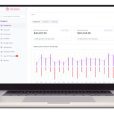We recently had a one-on-one meeting with Richard Tegoni (Chairman) at SECOS Group Ltd (SES). Given we do not cover the stock, the main purpose of this call was to get an initial understanding of the Company’s business model as we develop our knowledge on the stock. SES is a developer and manufacturer of sustainable packaging materials. The Company supplies its proprietary biodegradable resins, packaging products and high-quality cast films to a blue-chip global customer base. Below are the key points from our discussion.
Company overview. SES is a developer and manufacturer of sustainable packaging materials. The Company supplies its proprietary biodegradable resins, packaging products and high-quality cast films to a blue-chip global customer base. SES is integrated from resin production, into film (cast and blown) production and can develop bespoke compostable solutions for a range of applications. SES is a disruptor – the Company is threatening the flexibles films space, particularly relating to single use plastics. Increasingly, countries around the world (around 130) have banned single use plastic bags and this is also being driven by consumer demand for environmentally friendly packaging solutions (for which they are willing to pay a premium price). Further, corporates are also increasingly seeking sustainable packaging solutions in order to promote themselves among their consumers/customers as environmentally friendly. This provides an attractive global growth opportunity for SES’ compostable bag products. The Company has sales presence in 14 countries and is protected by patents, technical IP and distribution channels.
FY20 earnings inflection. After the previous years of restructuring and exiting uneconomical revenues, the Company was EBITDA positive in 2H20 and was cash flow positive in 4Q20. This sets up FY21 for a period of growth for SES, with the Company closing several new contracts this year.
FOGO program. Local councils’ initiative FOGO (Food Organics, Garden Organics) program is a push to remove waste from landfills to composting facilities. Local councils are allowing compostable bags to go into green waste bins, and this is increasing the demand for SES compostable bags. Penrith council in NSW was one of SES’ early customers. Management noted Penrith council in fact pays for SES’ bags (~$1m p.a.) to give out for free so that consumers can separate food scraps. Over the past 10 years, management noted that Penrith Council has saved $10m in landfill costs as a result of this initiative. More councils around Australia are now starting to rollout FOGO and this area is a key driver of growth for SES. Management recently signed a $600k contract with the Melville council in Western Australia, tender sales size ranging from $30k to up to $1.5m p.a. Management believes this will become a standard in the future, which will likely see local councils rolling the program out everywhere. Management noted in the past the time to close a council deal took months to 12 months and now they are bringing on 3-4 councils per quarter. At present this segment represents around 20% of organic sales of SES’ bioproduct sales, with management expecting strong double-digit growth in this segment over the medium term.
Retail push – Woolworths contract. Management noted that whilst the councils’ business is a key growth segment, they expect the retail market to be the next segment to drive significant growth, which is why the recent contract with Woolworths is material in more ways than one. This is also SES first B2C brand, which allows the Company to build up its brand and even directly compete in council areas which do not use its bags for the FOGO program. The Company is developing a portfolio of products under the brand MyEcoWorld which will be available through retailers and online portal, which will include MyEcoBag for bin liners and MyEcoPet for pet wastes. The contract with Woolworths is to supply two SKUs into the market but it is not volume based (i.e. Woolworths will not buy fixed volumes, it will be supply as per demand). Currently, SES is in 86 Woolworths stores, with management noting that they have exceeded by a considerable margin the minimum sales threshold to date. The opportunity for SES is to increase the number of SKUs in Woolworths stores (e.g. pet waste bags) and increase the number of Woolworth stores where the products are available. The Company is talking to Aldi and Coles as well, therefore we would expect further deals to be announced.
Focus on global growth. Management noted that whilst Australia represents an exciting opportunity, management see significant growth opportunity offshore – U.S., Latin America and Europe. Management also highlighted that they are able to extract better margins in offshore markets versus Australia. This makes sense given in Australia, the strong hold of Woolworths and Coles in retail space means margin upside is likely to be limited.
U.S. growth. Given the size of the U.S. market, SES has established a U.S. office, 30% of the shareholder register are U.S. investors and hired a U.S. director who operates the U.S. office. Jewett-Cameron is effectively distributing SES products in the U. S., given SES is wholesaling to Jewett-Cameron. SES is also launching the MyEcoWorld online portal in the U.S., which will also support SES retail brand in the U.S. market.
Latin America strategic partner provides another access to the U.S. market. SES recently announced that it had secured a strategic distribution agreement with Infinite Source Of Ideas (ISOI) in Latin America. ISOI will be the exclusive distributor in Latin America for the sale of Cardia Bioplastic resins to local converters. In the current quarter, ISOI has already achieved initial commercial orders of over $1.5m. What is worth highlighting much of the Latin American manufacturing supplies into the U.S., giving SES access to an important supply chain.
Revenue outlook. The business has 3 main categories: (1) resin (sold to converters in Latin America, Malaysia and China), which is expected to see strong growth (given the recent Latin America sales update, the Company is likely to see $3-4m in incremental resin sales alone this year); (2) finished products (mainly bags) – the Jewett-Cameron order of ~US$3m (annually) announced in July is incremental sales plus other bag orders (including councils and Woolworths), which could see a total of$4-5m incremental sales growth in bag sales this year based on what has been announced; and (3) films. The Company is likely to deliver $28 – 30m in revenue growth based on these estimates in FY21 vs $21m in FY20.
50% of SES business still in traditional plastics, which is low growth. SES traditional plastics business in Malaysia sells hygiene film, which was originally 95% of the business and is a low margin/low growth business. It is now ~50% of group revenue and management expect it to decline further to 30-40% of group in the short-term. This business has been impacted by Covid-19 disruption (e.g. delayed orders), however expect this business to pick up again to revert to similar growth rates seen in prior years. The business is profitable and has strategic merit, given SES is supplying to tier 1 hygiene companies with traditional plastic film and this relationship allows SES to trial with these customers SES bio plastic films.
Expenses and capital expenditure outlook. In terms of fixed overheads, management expects a marginal uplift in expenses (+$200k). There is significant spare capacity in the business (some of the plants are running at ~30% utilisation), hence the expected uplift in demand will see the benefits of operating leverage come through in future periods. D&A is likely to increase over the medium to long-term, as the Company invests in the business to increase capacity (e.g. adding new lines). An indication of management confidence in the Company’s growth trajectory, the Company is starting to build in capex investment in FY22 and FY23 numbers as they expect to hit capacity sooner than later. We expect the Company to ramp up capex aggressively over the coming 6 – 12 months to support sales growth in FY23 – 25.
Well-funded as a result of the recent capital raising. The Company recently did a capital raising of $15m @ 17cps. The Company paid down all of its debt and currently has approximately $16m in cash. This balance sheet provides SES the flexibility to fund its future growth initiatives, without the need to come to the market again or raise significant amount of debt (although cheap debt is now an option given the strength of the balance sheet). Management noted that there was significant investor interest in the recent capital raising – with demand significantly above the amount the Company was seeking. In fact, due to the strong demand, the Company increased the offer from $10m (original plan) to $15m. The capital raising also saw some notable institutions come on the share register – Ellerston, Regal Funds Management, Wilson Capital and Watermark Asset Management.
FY18 / FY19 growth impacted by repositioning. On face value, SES top growth has been disappointing over the past couple of years. However, this is been driven by management’s decision to remove uneconomical contracts (bottom slicing) and switching other contracts from traditional to bio sales. This has meant top line growth has been stagnant for the last couple of years, despite the strong growth in bio sales. The Company’s gross margin has jumped from 9.3% in FY19 to 17.5% in FY20, which highlights management’s efforts in removing uneconomical contracts and replacing with high margin bio plastics (better technology and fully integrated). In Dec-18, the Company closed its traditional plastic hygiene plant in Melbourne, which represented $6m in annual sales at anaemic gross margin of 11% – which was no viable. However, most of this business has been replaced with bio plastic (some have been moved to Malaysia – which improved the utilisation rate of this plant). This removed around $3-4m in overhead costs. Going forward, top line growth should accelerate from here as it will not be as diluted from SES’ low growth part business (which in fact went backwards in FY19).
- Quick Update: Who bought the dip?Iron ore update + more - August 14, 2024
- What if we are NOT in a new “commodities supercycle”? - August 1, 2024
- Who is going to power the AI boom? - May 30, 2024













Leave a Comment
You must be logged in to post a comment.